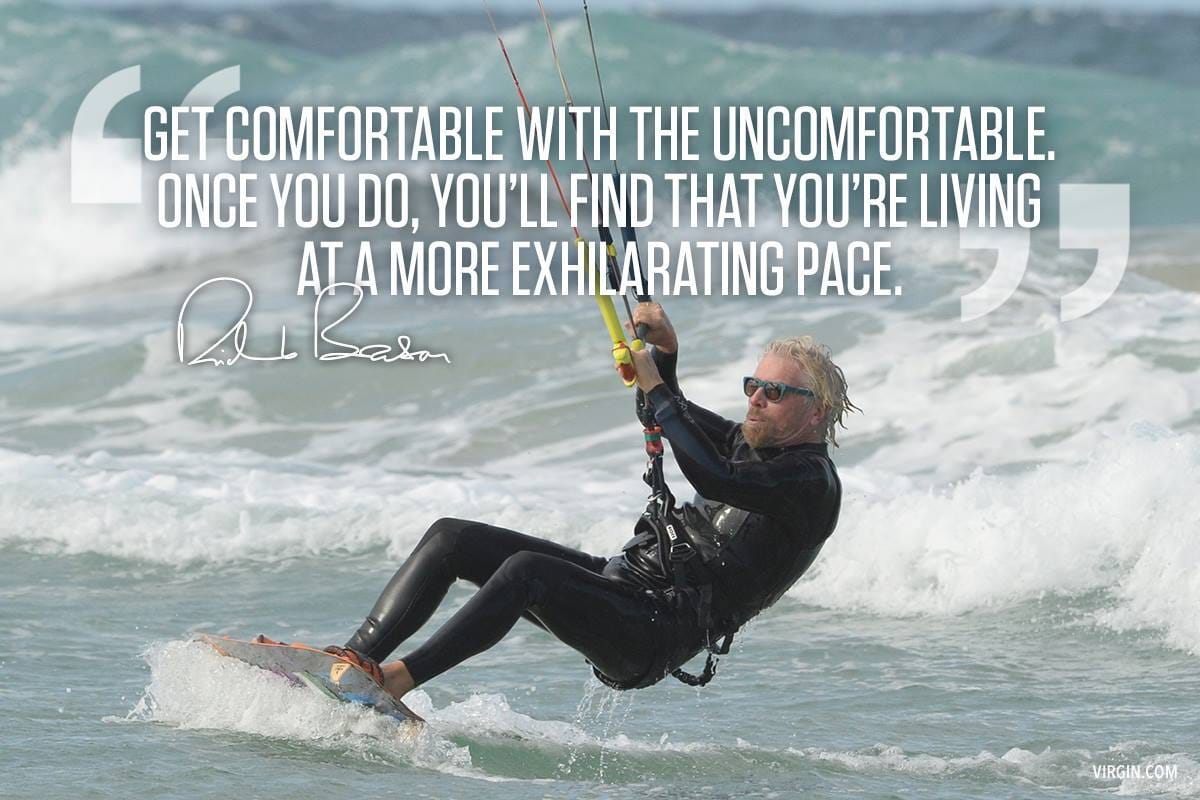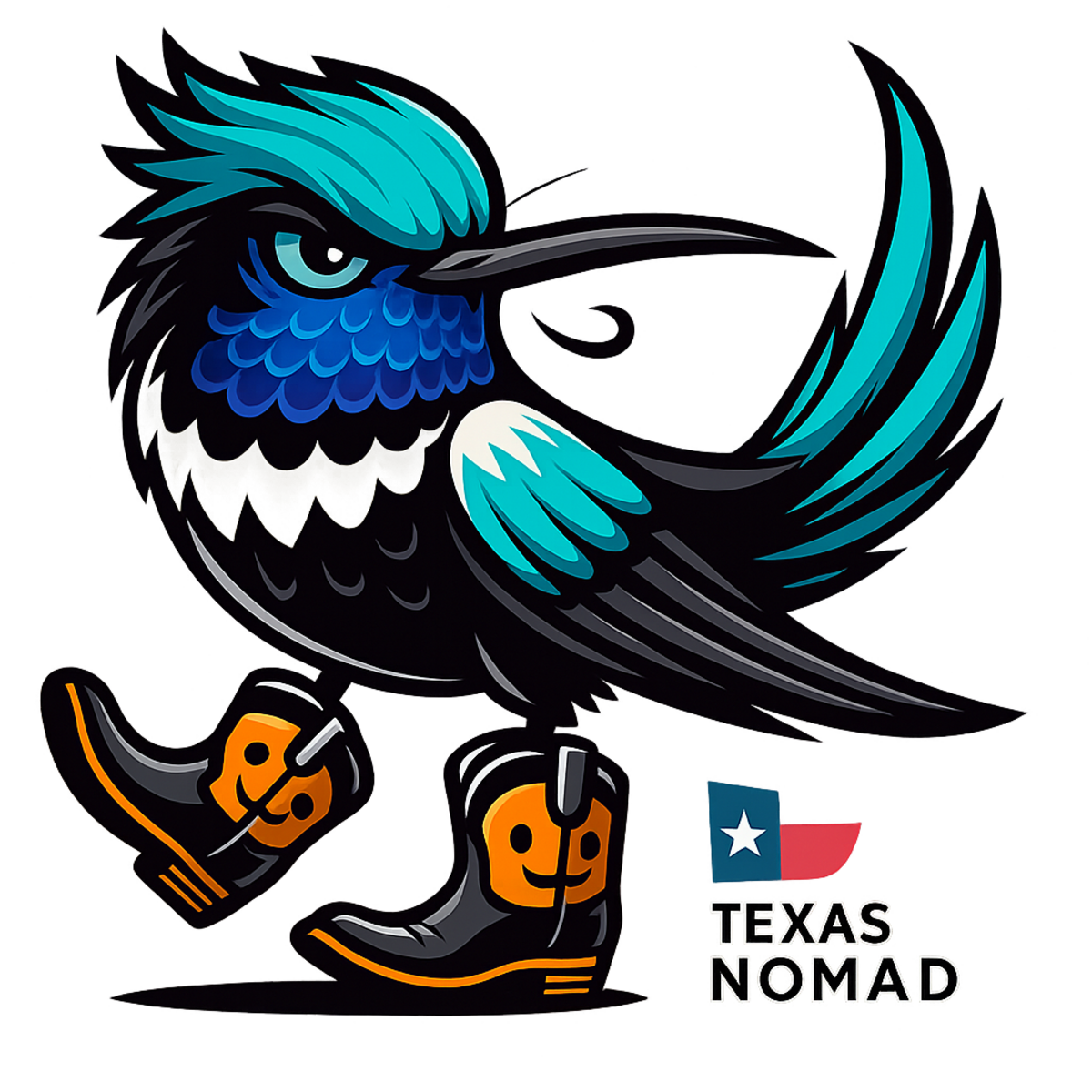In Today’s Email
🐦 Rio's Fact of the Week:
“Did you know that hummingbirds can remember every flower they’ve ever visited—even years later?
My tiny brain is a GPS for nectar. Meanwhile, you humans forget where you put your keys five minutes ago. Maybe try getting uncomfortable more often—it’s how we learn.” – Rio
🔥 The Deep Dive: The Discomfort Challenge The fastest way to grow? Get uncomfortable. Whether it’s pushing through social hesitation or breaking old habits, discomfort is the key to leveling up.
📖 The Read: Hidden Potential by Adam Grant Success isn’t about talent—it’s about stretching beyond your strengths. A must-read for anyone serious about reinvention.
🎥 The Stream: Brené Brown: The Call to Courage Fellow Texan Brené Brown breaks down why vulnerability isn’t weakness—it’s the secret to growth.
🐔 This Week’s Cover Image: A chicken standing on the edge of a diving board, contemplating the ultimate leap of faith. Because sometimes, we all have to take the plunge.
👥 Challenge a friend! If you know someone who needs a push to step outside their comfort zone, share this newsletter with them.
Invite them to take on the 7-Day Discomfort Challenge.
Let’s get uncomfortable!
🎉 Big Announcement:
We Have a Sponsor!
This month, we’re proud to partner with Kwakwa, a company that helps you take learning into your own hands, literally with mobile learning.
Quickly and easily learn how to do everything from meditating to your make-up.
They’re a perfect fit for A Texas Nomad because, like us, they believe in embracing reinvention, continuous learning, and using technology to level up.
Please click the Kwakwa link—they do great stuff, and your support helps keep A Texas Nomad going strong!
Thinking about creating an online course? This app is a game changer
KwaKwa is the ultimate course creation tool for creators who thrive on social media. It offers a familiar, social-like experience with vertical videos, interactive stories, and outstanding engagement elements, making it easy to create courses and teach like a pro.
Which country boasts the highest number of hummingbird species?
The Deep Dive

Why Did the Chicken Deep Dive?
Settle In and Get Uncomfortable
Every digital nomad learns fast that comfort is a myth.
You land in a new country, don’t know the customs, can’t read the signs, and suddenly even ordering a coffee feels like an achievement.
Everything that was second nature back home is now a small challenge. And that’s the point.
Most people spend their entire lives building layers of comfort around themselves—stable jobs, familiar routines, predictable social circles.
Nomads do the opposite.
We throw ourselves into the unknown, again and again, knowing full well that growth never comes from standing still.
Growth happens at the edge of discomfort.
People don’t succeed because they’re naturally gifted—they succeed because they lean into struggle faster than others.
They don’t wait until they feel “ready.” They jump in before they are.
It’s the same with travel. A lot of nomads say they want freedom, but what they really mean is the illusion of freedom, without the friction.
They go to a foreign country but only talk to other expats. They stick to safe routines. They never lean into discomfort, so they never really grow.
The best nomads—and the best at anything—aren’t the ones who play it safe. They’re the ones who learn to train discomfort like a muscle.
If you’re not forcing yourself to get uncomfortable every day, what are you even doing? Playing a different version of your old life, just in a place with better weather?
And like any muscle, if you don’t use it, it atrophies. As we age, our tolerance for discomfort shrinks.
Bill Gates once said that adults struggle to learn computers, not because they are unable, but because they are afraid of looking stupid.
Kids don’t have that problem because they haven’t yet developed the fear of failure.
Up to a certain age, everyone—regardless of race or gender—has the same ability to learn and adapt.
It is only when external labeling and societal expectations come into play that, for example, girls begin to score lower on math tests, despite showing the same aptitude as boys in early childhood.
This isn’t a matter of innate ability—it’s the impact of conditioning and expectation.
Any teacher or a myriad of studies will confirm that young children don’t have these gaps until they are taught to believe they do.
As we grow up, and even more so as we age, we must act to counterbalance these hindrances.
Getting uncomfortable is the way.
The same thing happens across all areas of life—if you aren’t constantly exposing yourself to discomfort, you become more rigid, more resistant to change.
And the more you avoid discomfort, the harder it is to break out of your habits.

Sir Richard Branson
The 7-Day Discomfort Challenge
For the next seven days, do something that makes you hesitate. Each day, pick one challenge from this list:
Talk to a stranger for at least 5 minutes. No small talk—ask something meaningful.
Give three genuine compliments to people you don’t know. Make it specific.
If you live somewhere that speaks your language, go to a different restaurant and order in Spanish (or another language). No English. No backup plan.
Say yes to an invite you’d normally decline. See where it takes you.
Walk up to someone and start a conversation in a social setting. Coffee shop, bookstore, gym—wherever.
Post something vulnerable or unpolished online. No overthinking.
Physical Discomforts (For those who have grown too comfortable in routine)
Go for a run or a workout that pushes you past your usual limits.
Try a new physical activity that makes you feel like a beginner. Rock climbing, yoga, dancing—anything that makes you uncomfortable.
Fast for 24 hours. If you’ve never done it, experience the discipline of hunger.
Sleep on the floor for one night. See how your body reacts to changing your usual comfort.
Blindfold yourself and walk around your apartment. Improve your spatial memory and awareness by navigating without sight.
Mental & Creative Discomforts (For extroverts and those who always feel the need to be in control)
Spend an entire day in silence. No talking, no social media, no external stimulation.
Meditate for 30 minutes without distraction.
Read a book from a genre you’d normally never touch.
Write a page about your biggest fear and share it with someone.
Let someone else plan your entire day. No control, just follow along.
Sit alone in a public place for an hour without distractions. No phone, no book—just be.
Growth isn’t about knowing what to do—it’s about training yourself to act despite hesitation. Because if you’re always comfortable, you’re not really living—you’re just coasting.
Are you in?
The Read
What If Discomfort Is the Shortcut to Growth?
Every digital nomad knows reinvention isn’t just an option—it’s the cost of entry.
The ability to step into the unknown, adapt, and figure things out on the fly is what separates the ones who thrive from the ones who crash and burn.
That’s why Hidden Potential by Adam Grant hit me hard. It’s about unlocking growth in ways most people never tap into—not through talent or luck, but by actively leaning into discomfort.
Grant makes it clear: people don’t grow because they’re naturally gifted; they grow because they push through struggle faster than others.
They don’t wait until they feel “ready”—they jump in before they are.
A great example from the book is Benny Lewis, a polyglot I first read about years ago when studying languages.
He didn’t learn multiple languages because he had a gift—he learned them because he forced himself to make 200 mistakes a day. He hacked his own discomfort until it stopped feeling like failure and started feeling like progress.
I thought about how this applies to nomad life.
The best experiences happen when you push beyond the safe, predictable choices—talk to the stranger, take the spontaneous trip, throw yourself into a new challenge before you have it all figured out.
The worst thing a traveler can do is stay in a bubble, repeating the same easy habits in different locations.
I’m taking this as a reminder: if I’m not uncomfortable, I’m not growing.
So here’s the question—where have you been playing it too safe? And what’s one thing you could do today that forces you just a little past your comfort zone?
Hit reply and tell me. Let’s push the edge.
If you’re ready to lean into discomfort, I wrote a longer breakdown on this over on Substack. Give it a read here:
The Stream
If you’re looking for a masterclass in embracing discomfort, The Call to Courage is worth your time.
In this Netflix special, Brené Brown—researcher, storyteller, and fellow Texan—dives deep into why vulnerability isn’t a weakness, but a prerequisite for growth.
She makes it clear: You can have courage, or you can have comfort, but you can’t have both.
That’s the central idea, and it applies to everything from relationships to careers to, well, picking up and moving across the world (sound familiar?).
Brown breaks down how fear of failure, rejection, and looking foolish keeps us stuck in our comfort zones.
But discomfort is where the good stuff happens.
Whether it’s having a hard conversation, putting your creative work out there, or stepping into the unknown, the willingness to be uncomfortable is the price of admission for a meaningful life.
She doesn’t just talk about vulnerability—she makes it clear that if you’re not in the arena, fighting, failing, and getting back up, you don’t get to sit on the sidelines and criticize.
As she puts it, "If you are not in the arena getting your ass kicked, I am not interested in your feedback."
We live in a world that has become less courageous—where people surround themselves with easy praise, chasing likes and approval to avoid discomfort—making them less bold, less creative, and ultimately, worse at thinking for themselves.
Brown argues that we must fight against this tendency and step up, even when it’s terrifying.
One of the most powerful moments is when she says: "You can choose courage, or you can choose comfort, but you cannot have both."
Avoiding discomfort isn’t just about playing it safe—it’s about settling for less than what life could be.

Alright, you’ve made it this far—so now there’s only one question:
Are you in?
Are you ready to get uncomfortable, take the leap, and see what’s on the other side?
Maybe it’s a cold shower. Maybe it’s an awkward conversation. Maybe it’s stepping into the arena when every part of you wants to sit safely in the stands.
Either way, you know what to do. Pick one thing. Do it today.
And if you know someone who could use a push out of their comfort zone, send them this newsletter.
Challenge them to take the 7-Day Discomfort Challenge with you. Growth is better when you’ve got people in the arena with you.
Let me know how it goes—comment or hit reply and tell me the most uncomfortable thing you did this week. I want to hear it all.
Happy Trails,

Edward McWilliams






Social Discomforts (For introverts and those who play it safe socially)